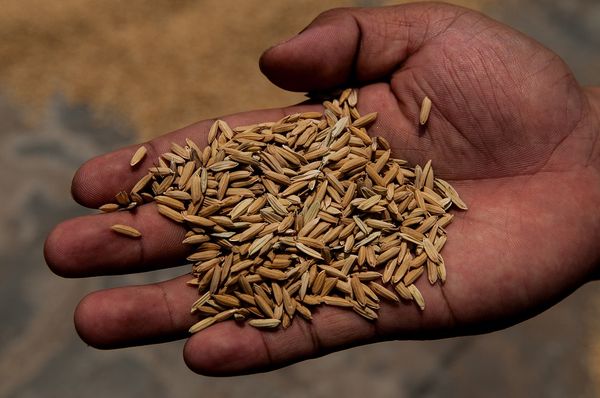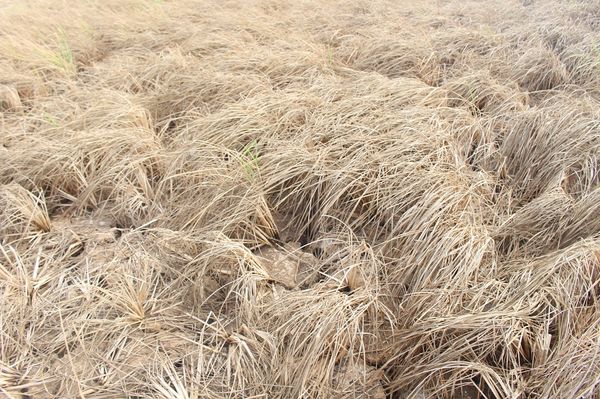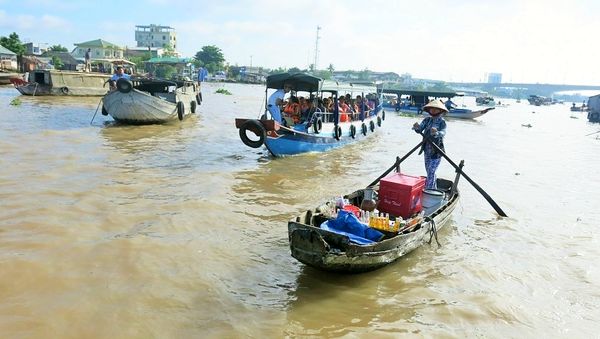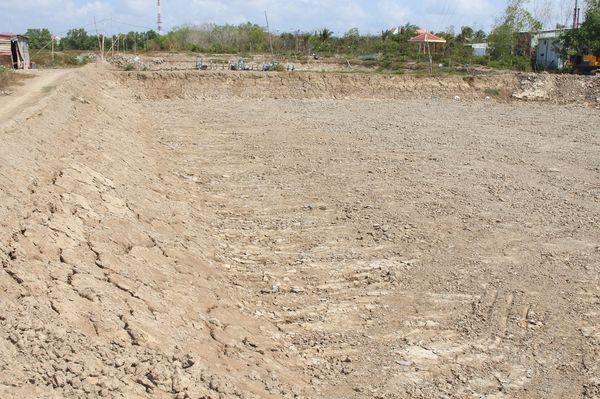In Vietnam, management of wildlife diseases has garnered attention from both the State and the public. This is evident through a comprehensive system of regulations addressing diseases that can be transmitted from wildlife to humans spanning a range of documents, from laws to decrees and circulars. However, despite these efforts, the practical implementation of wildlife disease management still encounters numerous challenges and shortcomings.

A Thirsty Mekong Delta
Located at the end of the Mekong River basin, the Mekong Delta in Vietnam is currently experiencing the most severe drought and salinity intrusion in 100 years.
According to experts, the principal reason is development activities in Greater Mekong Subregion (GMS) countries related to the use of the Mekong River’s water resources, including the operation and construction of mega-dams along the river as well as water diversion for agricultural purposes.
Thus far, after months of struggling in a record-breaking drought, millions of farmers in the Mekong Delta have succumbed to exhaustion, due to significant losses of crops, fruits and aquaculture.

Disappearing Rice
At 3pm, the summer sun is scorching. Rice paddies in Soc Don hamlet, Hung Hoi commune, Vinh Loi district, Bac Lieu province clearly illustrate the impact of the worst drought in 100 years. At this time last year, rice was growing vibrantly, but now the rice stands lifeless.
Ms. Pham Thi Lan, a 60-year-old villager of Soc Don hamlet, wiped the sweat on her face as she tried to pick up some imperfect grains in her dry field.
Planting rice for three generations, Ms. Lan has never met harder circumstances. In the past, her family could yield around 20 tons of rice from 2.4 hectares of land, but during this crop season, she harvested absolutely nothing, due to the drought and salinity intrusion.
“On average, we get 180 sacks of rice per hectare. This year, it was only 20 sacks or even fewer. We still have not finished the payment for fertilizer and ploughing services, which are nearly 40 million VND (more than US$1,500). We don’t know where the money is for summer – autumn crop season!” Ms. Lan bitterly said.
What has befallen Ms. Lan is not unique to here; farmers across the Mekong Delta are struggling due to the most severe drought and salinity intrusion of the past 100 years.

According to statistics from the Ministry of Agriculture and Rural Development of Vietnam, 160,000 hectares of rice plants in the Mekong Delta have been directly affected by drought and salinity intrusion, damaging more than 86,000 hectares and reducing 70 percent of crop yield. The most affected provinces are Ca Mau (nearly 50,000 ha), Kien Giang (roughly 34,000 ha), Ben Tre (more than 13,000 ha), Bac Lieu and Tra Vinh (11,000 ha in each province). Other provinces such as Soc Trang, Long An, Hau Giang, and Tien Giang were also affected, but not to the same extent.
Expecting an average yield of four tons of rice per hectare with the price of 4,300 VND per kilogram, farmers in Vietnam lost 640,000 tons. The damage (not precisely estimated) accounted to nearly US$150 million.
The Mekong Delta of Vietnam accounts for 12 percent of total land area, nearly one-fifth of the population, and is considered the rice bowl of Vietnam, contributing 56 percent of food production and 90 percent of rice exports. But now, the Delta, the home of nearly 20 million people, is suffering from salt water intrusion in agricultural land.
Dr. Le Anh Tuan, an expert on climate change from Can Tho University, voiced concerns about the abnormal movements of salinization. The city of Can Tho, located 100 kilometers from the sea, has been facing the saline water invasion.

The intrusion of salt in the waters of Mekong River may reach 4 per thousand, enough to kill all kinds of plants, say scientists. A March 2016 report by the Ministry of Agriculture and Rural Development stated that 200,000 households equating to 500,000 people are struggling with water shortages.
Saline water has long been invading the Delta, but because of the drought, there is not enough fresh water in the river and its distributaries to dilute the seawater. The salt is having a more devastating impact, scientists say.
This year, the total flow of the Mekong River to the Delta in Vietnam is much lower, by almost 20 to 40 percent in comparison to the average of the past five years, and the deleterious affection from the tide is stronger. 160/164 communes of Ben Tre province have been suffering from water shortages.
Lung Ngoc Hoang Nature Reserve in Hau Giang province, which covers an area of 3,000 hectares and is considered the “water tank” of the Mekong Delta, is also threatened to be invaded by saline water. In the worst case scenario, in which the nature reserve experiences saline intrusion, Lung Ngoc Hoang’s ecosystem would be devastated and around 500 species of plants would disappear.

Significant economic losses
According to the Vietnam Food Association, in 2015, Vietnam exported 6.568 million tons of rice worth US$2.68 billion, which ranked third in the world, after India (more than 10 million tons) and Thailand (more than 9 million tons).
Due to the impact of the drought and salinization of water this year, the rice exports of Vietnam will significantly decline. Dr. Nguyen Van Sanh, director of the Mekong Delta Development and Research Institute, stated that Vietnam will consume about 80 percent of total rice production, and only export 20 percent of total production. The rice supply for both domestic market and for exports will decrease due to the massive challenges facing the Mekong Delta.
Not only rice plants and sugarcane are affected, but the fisheries have also shared the same fate. In the two communes of Thua Duc and Thoi Thuan in the heart of Ben Tre province, more than 80 percent of the oyster farming area was damaged, with total volume of 2,300 tons, worth approximately US$2 million. Salinization also affected an area of 1,200 hectares of fish cages on the Tien River.
Many orchards in all 13 provinces of the Mekong Delta withered because of water shortages. Specialty crops such as mango, durian, and pomelo failed this year. Unlike previous years, Ben Tre province cancelled all scheduled fruit exhibitions and festivals.
Annually, Vietnam exports 1.6 million tons of fruit to 40 countries and territories around the world, with most of the fruit grown in the Mekong Delta.
Due to the impact of the drought and saline water, the shortage of the fruit supply will reduce competitiveness in both domestic market and for exports.
Rice lost, fisheries and orchards damaged…The rice bowl of Vietnam is currently at risk of losing its character forever…
Part two will examine the impacts of dam construction and other projects on the Mekong Delta.
————————————————————————————————————————————
This story was produced in cooperation among PanNature, The Mekong Eye and Mekong Matters Journalism Network, with full editorial control to the journalist.



